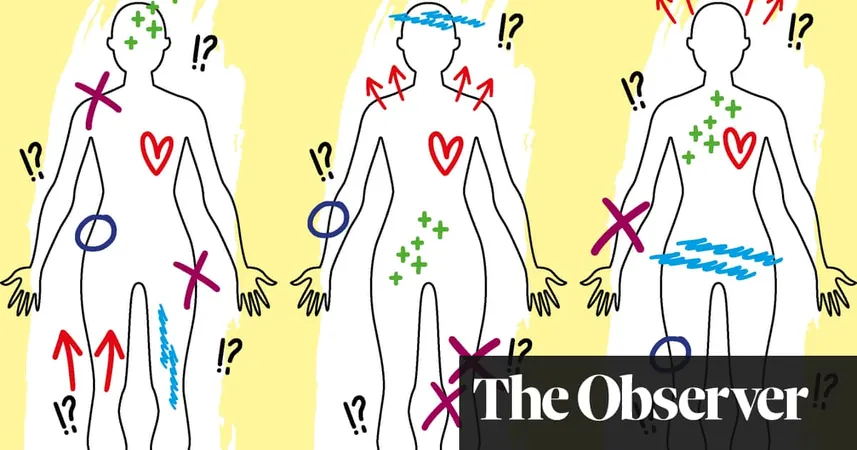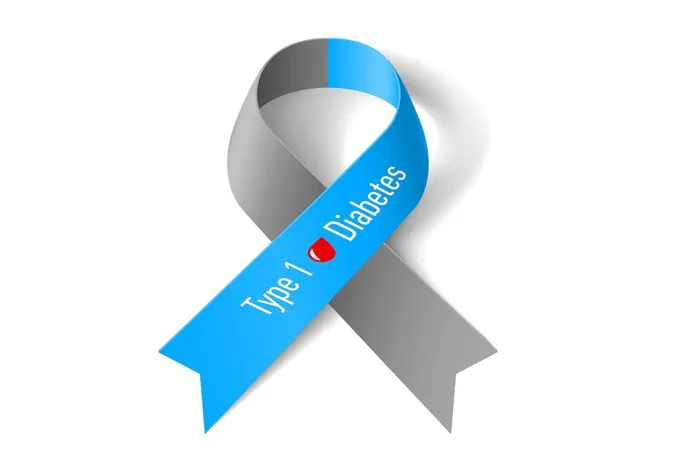
Unlocking the Mysteries of Long Covid: How Body Mapping Can Change the Conversation
2025-01-18
Author: Wei
Unlocking the Mysteries of Long Covid: How Body Mapping Can Change the Conversation
In the wake of the Covid-19 pandemic, many individuals have been plagued by a series of debilitating symptoms associated with long Covid, as well as related conditions like ME/CFS (myalgic encephalomyelitis/chronic fatigue syndrome). These post-infectious diseases have stumped the medical community, as patients often report overwhelming fatigue, breathlessness, and chronic pain, yet their routine medical examinations yield normal results. The hidden nature of these illnesses leads to skepticism from family members and healthcare providers alike, further complicating patients’ struggles to articulate their experiences.
Researchers at Oxford University are now breaking new ground with an innovative technique known as "body mapping," which endeavors to help patients convey the intricate physical, cognitive, and emotional dimensions of their ailments more effectively. Maaret Jokela-Pansini, a leading researcher on the project, emphasizes the importance of understanding how illness is perceived through various lenses—economically, socially, and culturally. “When we talk about health and disease, we must always take space and time into account,” she notes.
Jokela-Pansini's introduction to body mapping originated during her work in a women’s organization in Honduras. This technique, which entails outlining a person’s body to visually represent their health experiences, has been particularly effective in trauma therapy and chronic pain management. “We refer to it as ‘alternative cartography,’” she explains. “Pain, emotions, and experiences are mapped onto the body, highlighting the interplay between personal feelings and environmental factors.”
Collaborating with Oxford professor Beth Greenhough, Jokela-Pansini launched the project Visualising Long Covid, hosting eight workshops across London and Oxford in partnership with the charity Long Covid Support. Participants begin their journey by tracing their bodies, and are then prompted to illustrate or articulate their responses to targeted questions concerning their pre-illness health, daily life impact, levels of support, and shifts in self-perception due to their illness.
Describing the process, Jokela-Pansini notes, “Body mapping is really about storytelling.” Participants often center their illustrations around significant areas such as the head or heart, signifying spaces of emotional relevance. Common themes emerge through these visual narratives, with many individuals depicting shadows—symbolizing their feelings of being mere remnants of their former selves, stranded in a time when the rest of the world has moved on.
Oonagh Cousins, a participant who now contributes as a research fellow, has noted how body mapping has allowed her to delve into the physical manifestations of her illness. She articulates the frustration of being dismissed with simplistic labels like "fatigue" and "brain fog," which skirt the profound challenges that patients face. “Fatigue is not mere tiredness; it feels like the worst hangover mixed with the worst flu,” she asserts. “You lose parts of who you were, and this is an indescribable pain.”
Cousins, a former competitive rower who was poised for Olympic trials when she contracted Covid-19, shares her harrowing journey through long Covid and ME/CFS. Instead of living life in its prime, she has spent her 20s battling relentless health issues—a grief amplified by the loss of experiences and opportunities.
To further reach individuals unable to attend in-person workshops, researchers have developed an online toolkit to democratize access to body mapping. In the coming year, they plan to facilitate virtual sessions to engage a broader audience.
While Jokela-Pansini clarifies that body mapping does not serve as a cure, it aids in conveying the depths of patient experiences to their families and healthcare providers. “Body maps can help patients illustrate where they feel symptoms, fostering discussions that support better management plans,” says Carolyn Chew-Graham, a GP who acknowledges the potential of this tool in normalizing patient narratives. The banter often surrounds whether these conditions are "all in one’s head," a sentiment that can alienate patients, especially among marginalized communities where fatigue is stigmatized.
In acknowledgment of these disparities, Jokela-Pansini emphasizes the urgency of including diverse demographics in future research endeavors. “We have a lot of data on white middle-class women, but we need to understand the experiences of women with migrant backgrounds,” she asserts.
As society grapples with the realities of long Covid, it is vital to engage a multidisciplinary approach. By integrating insights from social scientists, biomedical researchers, clinicians, patients, and caregivers, we can hope to ultimately decode the complexities of post-infectious diseases. This collaborative exploration of human health is not just a path to understanding but also a vital step towards empathy and healing for those who feel lost in their struggles.
Are you or someone you know affected by long Covid? Discover the transformative power of body mapping, and help reshape the narrative around this pervasive condition!




 Brasil (PT)
Brasil (PT)
 Canada (EN)
Canada (EN)
 Chile (ES)
Chile (ES)
 Česko (CS)
Česko (CS)
 대한민국 (KO)
대한민국 (KO)
 España (ES)
España (ES)
 France (FR)
France (FR)
 Hong Kong (EN)
Hong Kong (EN)
 Italia (IT)
Italia (IT)
 日本 (JA)
日本 (JA)
 Magyarország (HU)
Magyarország (HU)
 Norge (NO)
Norge (NO)
 Polska (PL)
Polska (PL)
 Schweiz (DE)
Schweiz (DE)
 Singapore (EN)
Singapore (EN)
 Sverige (SV)
Sverige (SV)
 Suomi (FI)
Suomi (FI)
 Türkiye (TR)
Türkiye (TR)
 الإمارات العربية المتحدة (AR)
الإمارات العربية المتحدة (AR)